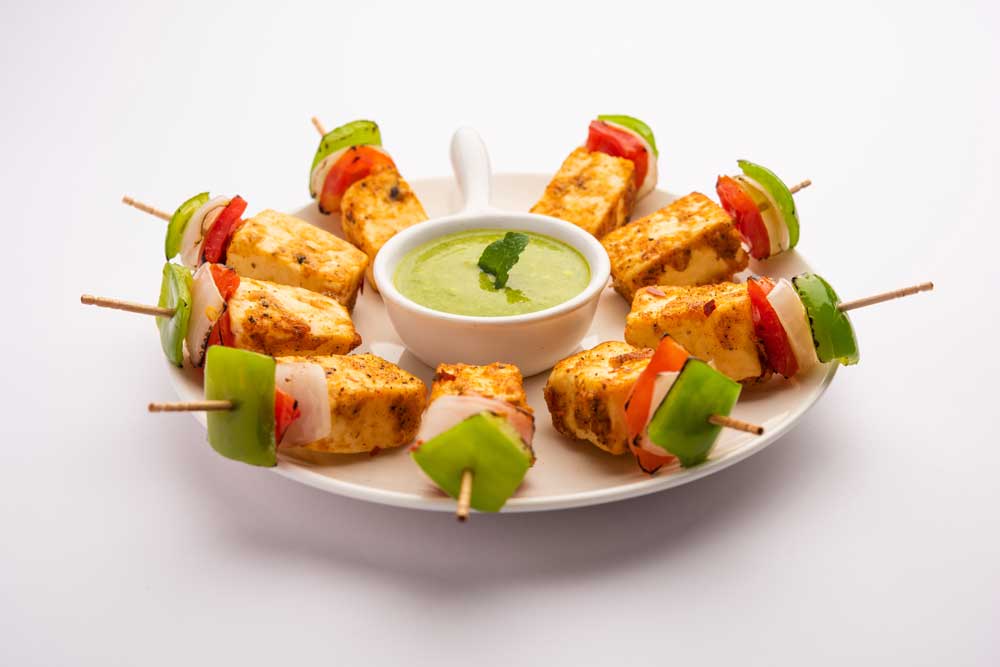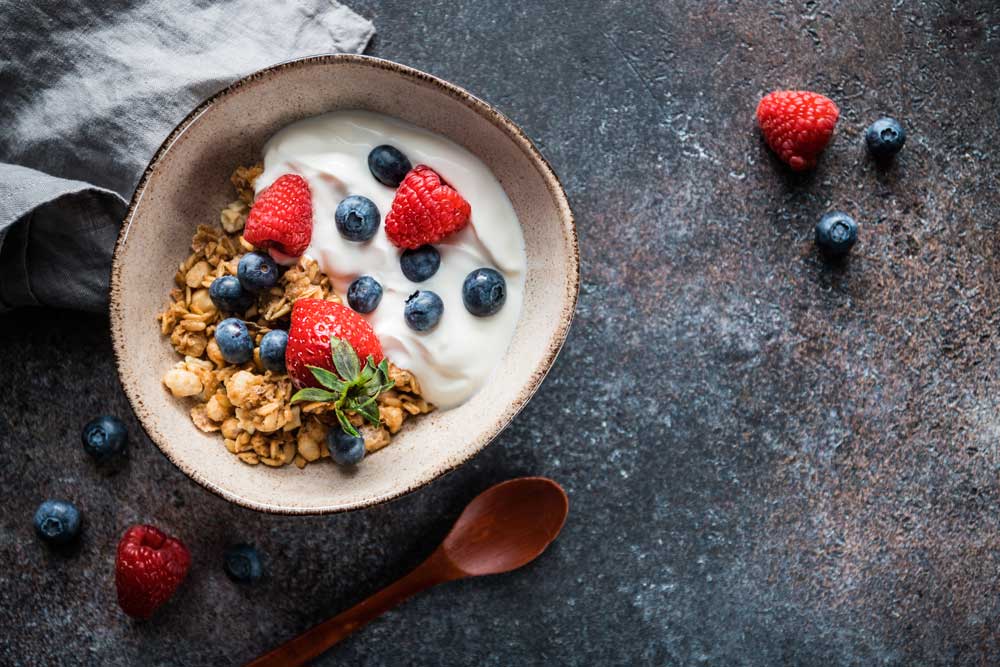For vegetarians, finding adequate protein sources is essential for maintaining a balanced and healthy diet. While meat is a well-known protein source, many vegetarian foods are rich in protein and can support muscle growth, weight management, and overall health. Incorporating a variety of these protein-rich foods into your diet ensures you receive all the essential amino acids and nutrients your body needs.
Protein plays a crucial role in various bodily functions, including repairing tissues, producing enzymes and hormones, and supporting immune health. For vegetarians, it's important to focus on both the quantity and quality of protein intake. Fortunately, numerous vegetarian foods are not only high in protein but also packed with other essential nutrients like fibre, vitamins and minerals, contributing to overall well-being.
Balancing your diet with diverse protein sources can help prevent deficiencies and provide a wide range of health benefits. From plant-based proteins like legumes, seeds, and grains to dairy products, the variety of options available makes it easy to meet your dietary requirements. Whether you're looking to build muscle, maintain a healthy weight, or simply improve your nutritional intake, incorporating these protein-rich foods into your daily meals can have a significant impact on your health and fitness goals.
1. Protein rich vegetarian food: Greek yogurt
Greek yogurt is an excellent source of protein, containing about 10 grams per 100 grams. It is thicker and creamier than regular yogurt, thanks to the straining process that removes excess whey. Greek yogurt is not only rich in protein but also provides probiotics, calcium and vitamin B12, making it a nutritious choice for vegetarians. Enjoy it plain, with fruits, or as a base for smoothies.
2. Protein rich vegetarian food: quinoa
Quinoa is a complete protein, meaning it contains all nine essential amino acids that the body cannot produce on its own. One cup of cooked quinoa provides around 8 grams of protein. This gluten-free grain is versatile and can be used in salads, soups, or as a side dish. Its high protein content and nutrient density make quinoa a staple in a protein-rich vegetarian diet.
3. Protein rich vegetarian food: cottage cheese
Cottage cheese is a dairy product that is high in protein, offering approximately 11 grams of protein per 100 grams. It is also low in fat and carbs, making it an ideal choice for those looking to increase their protein intake without adding too many calories. Cottage cheese can be enjoyed on its own, mixed with fruits, or used in savoury dishes.

4. Protein rich vegetarian food: hemp seeds
Hemp seeds are small but mighty when it comes to protein content. Three tablespoons provide around 10 grams of protein. These seeds are also rich in omega-3 and omega-6 fatty acids, which are beneficial for heart health. Hemp seeds can be sprinkled on salads, blended into smoothies, or added to baked goods for a nutritional boost.
5. Protein rich vegetarian food: soy milk
Soy milk is a popular plant-based milk alternative that is high in protein, offering about 7 grams per cup. It is made from soybeans and is often fortified with vitamins and minerals such as calcium and vitamin D. Soy milk is a great option for those who are lactose intolerant or allergic to dairy. Use it in cereal, coffee, or smoothies.
6. Protein rich vegetarian food: cheese
Cheese, in its various forms, is another excellent source of protein for vegetarians. Depending on the type, cheese can provide between 6 to 10 grams of protein per ounce. Cheddar, mozzarella, and Swiss cheese are popular options. Cheese is also rich in calcium and healthy fats, making it a nutritious addition to meals and snacks.
7. Protein rich vegetarian food: whey protein
Whey protein is derived from milk and is a complete protein, containing all essential amino acids. It is available in powder form and is commonly used in protein shakes and smoothies. One scoop typically provides around 20-25 grams of protein. Whey protein is an excellent option for vegetarians looking to increase their protein intake, especially after workouts.
8. Protein rich vegetarian food: almonds
Almonds are a protein-rich snack, offering about 6 grams of protein per ounce. They are also high in healthy fats, fibre, vitamin E and magnesium. Almonds can be eaten on their own, added to salads, or used in baking. They make a convenient and nutritious snack for vegetarians on the go.
9. Protein rich vegetarian food: soya bean
Soya beans are among the richest sources of plant-based protein, providing around 28 grams of protein per cup (cooked). They are also high in fibre, vitamins, and minerals. Soya beans can be consumed in various forms, such as edamame, tofu, tempeh and soy milk. Including soya beans in your diet can help meet your protein requirements effectively.
10. Protein rich vegetarian food: pumpkin seeds
Pumpkin seeds are small but packed with protein, offering about 7 grams per ounce. They are also a good source of iron, magnesium, and zinc. Pumpkin seeds can be eaten as a snack, added to granola, or used as a topping for salads and soups. Their crunchy texture and nutty flavour make them a tasty addition to a protein-rich vegetarian diet. Additionally, pumpkin seeds contain antioxidants that help protect your cells from damage. They are also known to promote good sleep due to their high tryptophan content, an amino acid that the body converts into serotonin and melatonin.
11. Protein rich vegetarians food: oats
Oats are a versatile and nutritious grain that provides about 6 grams of protein per cup (cooked). They are also high in fibre, which aids digestion and helps maintain stable blood sugar levels. Oats can be enjoyed as oatmeal, in baked goods, or as part of a homemade granola mix. Including oats in your diet is a great way to boost your protein intake while enjoying a hearty and satisfying meal. Additionally, oats are rich in antioxidants, which help reduce inflammation and support heart health. Their beta-glucan content has been shown to lower cholesterol levels, making them a heart-healthy choice.

Conclusion
Incorporating a variety of protein-rich vegetarian foods into your diet is essential for maintaining overall health and supporting muscle growth. From dairy products like Greek yogurt and cottage cheese to plant-based options like quinoa, hemp seeds, and soya beans, there are numerous delicious and nutritious ways to meet your protein needs. By diversifying your protein sources, you can ensure that you get all the essential amino acids and nutrients your body requires.
Moreover, focusing on high-protein vegetarian foods can provide additional health benefits such as improved digestion, better weight management, and enhanced energy levels. These foods are often rich in other essential nutrients like vitamins, minerals, and healthy fats, contributing to overall wellness. By making mindful choices and incorporating a variety of protein sources into your daily meals, you can enjoy a balanced diet that supports your fitness goals and promotes long-term health.
Embracing a protein-rich vegetarian diet doesn't have to be challenging or monotonous. With the vast array of delicious and versatile options available, you can experiment with different recipes and meal combinations to keep your diet exciting and satisfying. Whether you're an athlete aiming for muscle growth, someone looking to manage their weight, or simply focused on maintaining a healthy lifestyle, these protein-packed vegetarian foods can help you achieve your nutritional goals while enjoying every bite.
FAQs
Can vegetarians get enough protein from their diet?
Yes, vegetarians can get enough protein by including a variety of protein-rich foods such as Greek yogurt, quinoa, cottage cheese, hemp seeds, soy milk, cheese, whey protein, almonds, soya beans, pumpkin seeds, and oats.
What are some complete protein sources for vegetarians?
Complete protein sources for vegetarians include quinoa, soya beans, hemp seeds, and whey protein, as they contain all nine essential amino acids.
How much protein do vegetarians need daily?
The daily protein requirement varies depending on factors like age, sex, and activity level. Generally, the recommended daily intake is about 46 grams for women and 56 grams for men. However, athletes or those with higher activity levels may require more.
Is it necessary to combine different protein sources in a vegetarian diet?
While it's beneficial to eat a variety of protein sources to ensure you get all essential amino acids, it's not necessary to combine them in every meal. Consuming a diverse range of protein-rich foods throughout the day is sufficient.
Are plant-based proteins as effective as animal-based proteins?
Plant-based proteins can be as effective as animal-based proteins when consumed in adequate amounts and varieties to ensure all essential amino acids are included in the diet.